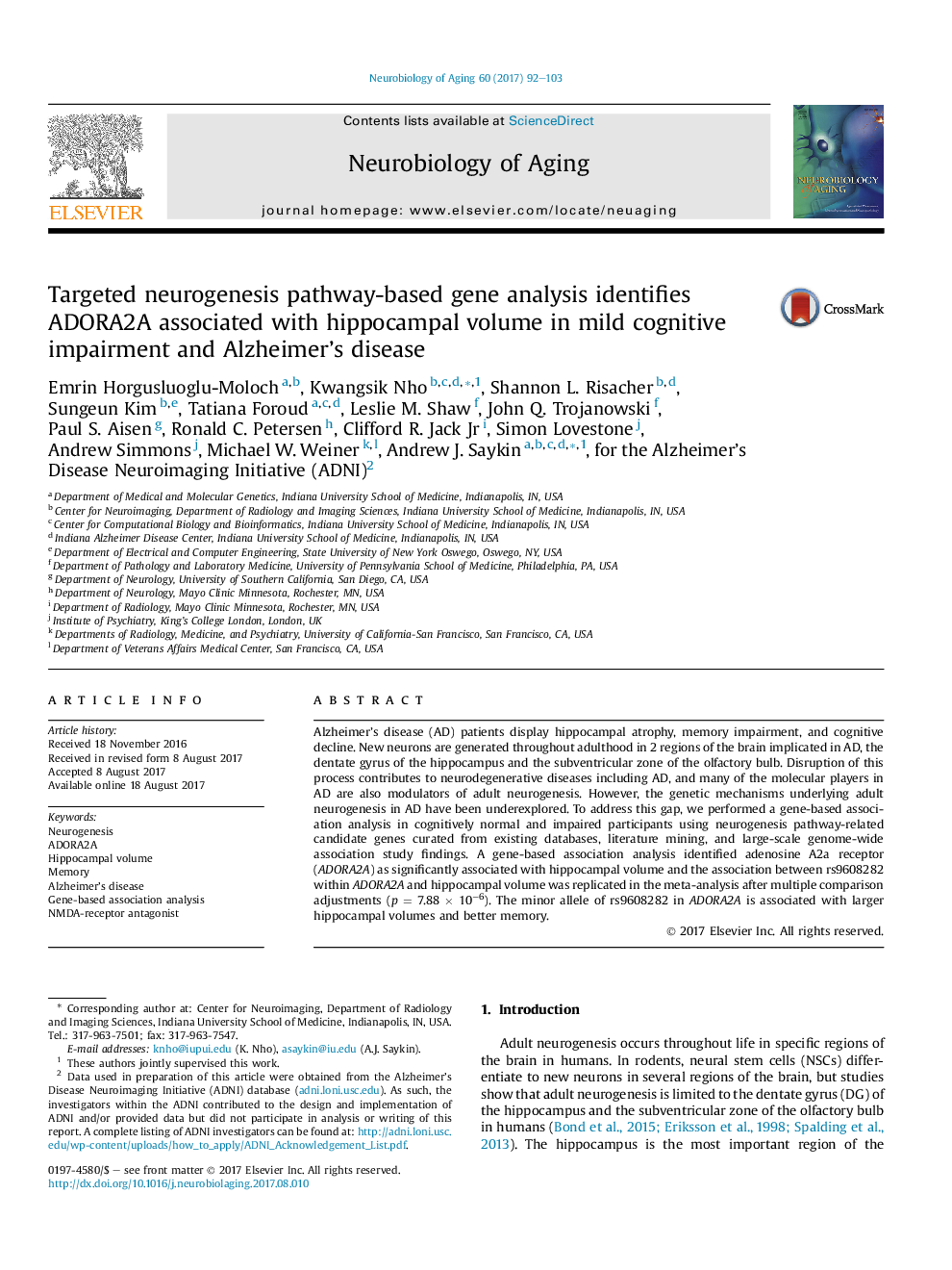| Article ID | Journal | Published Year | Pages | File Type |
|---|---|---|---|---|
| 4932530 | Neurobiology of Aging | 2017 | 12 Pages |
Abstract
Alzheimer's disease (AD) patients display hippocampal atrophy, memory impairment, and cognitive decline. New neurons are generated throughout adulthood in 2 regions of the brain implicated in AD, the dentate gyrus of the hippocampus and the subventricular zone of the olfactory bulb. Disruption of this process contributes to neurodegenerative diseases including AD, and many of the molecular players in AD are also modulators of adult neurogenesis. However, the genetic mechanisms underlying adult neurogenesis in AD have been underexplored. To address this gap, we performed a gene-based association analysis in cognitively normal and impaired participants using neurogenesis pathway-related candidate genes curated from existing databases, literature mining, and large-scale genome-wide association study findings. A gene-based association analysis identified adenosine A2a receptor (ADORA2A) as significantly associated with hippocampal volume and the association between rs9608282 within ADORA2A and hippocampal volume was replicated in the meta-analysis after multiple comparison adjustments (p = 7.88 à 10â6). The minor allele of rs9608282 in ADORA2A is associated with larger hippocampal volumes and better memory.
Related Topics
Life Sciences
Biochemistry, Genetics and Molecular Biology
Ageing
Authors
Emrin Horgusluoglu-Moloch, Kwangsik Nho, Shannon L. Risacher, Sungeun Kim, Tatiana Foroud, Leslie M. Shaw, John Q. Trojanowski, Paul S. Aisen, Ronald C. Petersen, Clifford R. Jr., Simon Lovestone, Andrew Simmons, Michael W. Weiner, Andrew J. Saykin,
